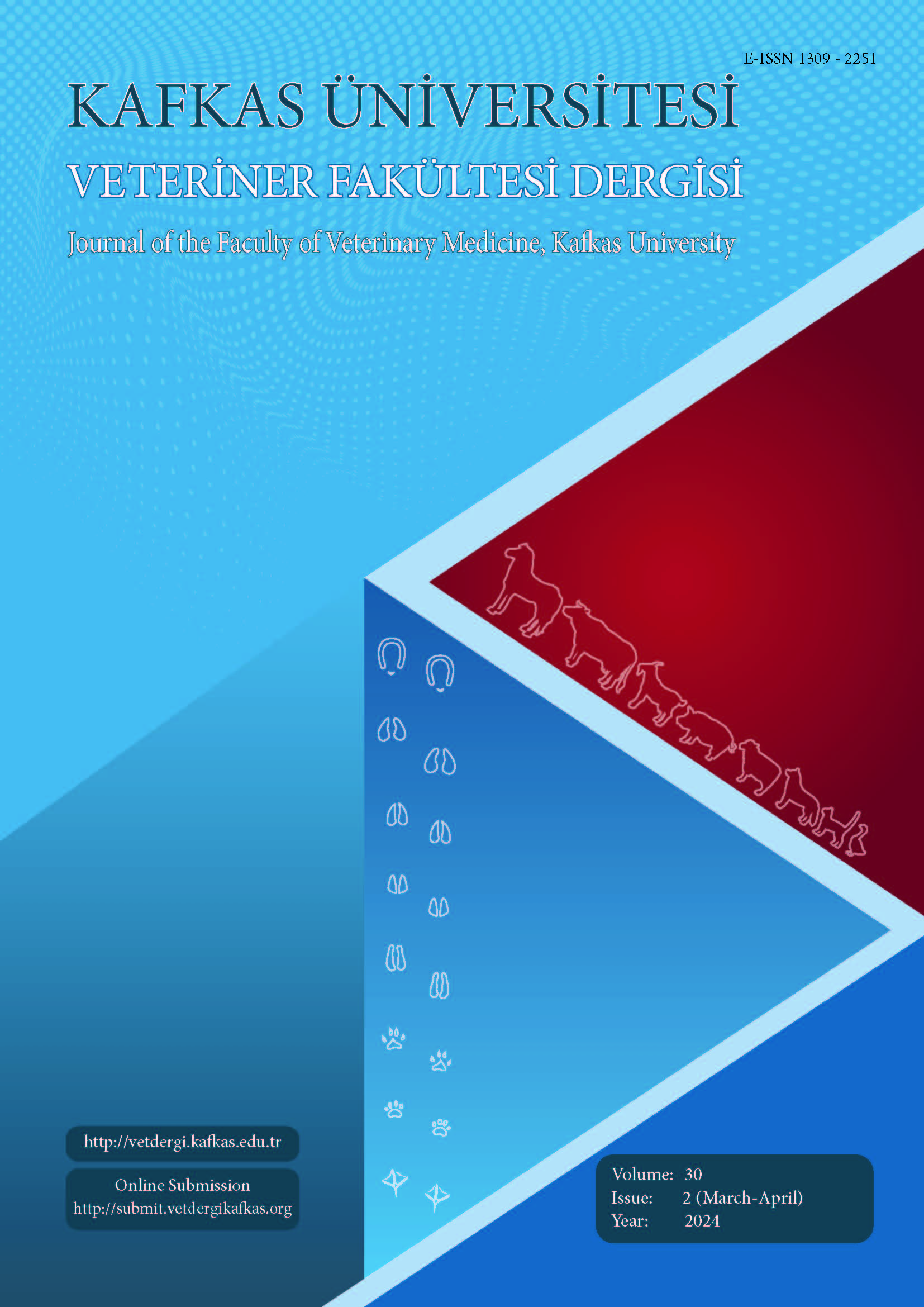
This journal is licensed under a Creative Commons Attribution-NonCommercial 4.0 International License
Kafkas Üniversitesi Veteriner Fakültesi Dergisi
2024 , Vol 30 , Issue 2
Observations on the Life Stages of the Fruit Fly Drosophila melanogaster When Fed Vitamin D3 in Artificial Diet
1Zonguldak Bülent Ecevit University, Faculty of Science, Molecular Biology and Genetics Department, TR-67100 Zonguldak - TÜRKİYE2Zonguldak Bülent Ecevit University, Faculty of Science, Biology Department, TR-67100 Zonguldak - TÜRKİYE
3Zonguldak Bülent Ecevit University, Çaycuma Food and Agriculture Vocational School, Veterinary Medicine Department, TR- 67900 Zonguldak - TÜRKİYE
4Zonguldak Bülent Ecevit University, Çaycuma Food and Agriculture Vocational School, Chemistry and Chemical Processing Technologies Department, TR-67900 Zonguldak - TÜRKİYE DOI : 10.9775/kvfd.2023.30405 This study focused on the use of an important micronutrient, vitamin D3 for control of pest insects as environmentally sound alternative management. Vitamin D3 which is a lipophilic vitamin at nutritionally reguired doses not only have important physiological roles but also has a toxic effect at high dietary concentrations. The first instar larvae of Drosophila melanogaster (Meigen) (Diptera: Drosophilidae), which is an important pest model organism were reared on artificial diet containing vitamin D3 concentrations of 5.0, 20, 80, 320, 1280 and 2560 mg/L to adult stage in laboratory condition. The effects of this vitamin on developmental stages of the insects were microscopically observed. Morphometric changes depending on increased vitamin D3 concentrations in the developmental stages from larvae to adults were recorded by microscobic and personal observations. Vitamin D3 at increasing concentrations (especially 80-2560 mg/L) in larval diet increased melanization in abdominal region of the insect. This study refers vitamin D3 can play a fortifying role in development as a nutritional additive at low concentrations, or can be used as an insecticide at high concentrations due to its possible toxic effect. Keywords : Developmental stages, Drosophila melanogaster, Microscopic observation, Vitamin D3










